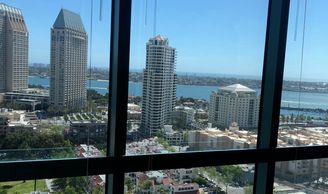Acquired brain injury (ABI) is a postnatal injury that is neither inherited nor congenital. ABI occurs when the brain does not receive any oxygen. The brain injury may be permanent and can create partial or functional disability. ABI can also result in psychosocial maladjustment. Although acquired brain injuries also cover traumatic injuries of the brain, this article with a focus on the differentiating features of acquired brain injuries.
Types of acquired brain injuries
Incidences that can starve the brain of oxygen supplies include stroke, exposure to toxic substances, drug abuse, drowning, or tumors. There are two types of ABI, namely cerebral hypoxia and cerebral anoxia. Although the two types are often used interchangeably, they have a distinct difference. External injuries cause cerebral hypoxia and cerebral anoxia, including car accidents or when an individual knocks the head on a hard surface.
Deprivation of oxygen to the brain can cause a severe impact on the brain. With time, the brain cells die hence affecting the transmission of messages. The brain uses 20% of the total oxygen in the body. It does not take a long period for damage to occur to the brain when no oxygen can reach it.
- Cerebral Hypoxic Brain Injury
Cerebral Hypoxic brain injury is a brain injury that happened when the brain received a portion of the needed oxygen for brain functioning. Situations like an electric shock, severe asthma attacks, high altitudes, and general anesthesia complication. Cerebral hypoxic brain injury depends on the period that the brain goes without oxygen flow and the cause. Barbiturates can be described to patients to help slow down the activities of the brain. Steroids can slow be used to reduce the chance of brain damage by reducing the swelling of the brain tissue. Medical professional treats symptoms depending on the manner the injury took place.
- Cerebral Anoxic Brain Injury
The meaning of anoxic is the absence of oxygen. The term is used to describe a situation where oxygen is unable to reach the brain. When the brain does not receive oxygen, the brain cells start to depreciate after four minutes. As the lack of oxygen increases the damage becomes widespread. Causes of anoxic brain injury include tremendously low blood pressure, electrical shock, brain tumors, and other traumatic experiences. Acute anoxic damage affects structures which regulate hormone regulation, especially the pituitary glands. The damage can result in changes to emotional, cognitive, and physical attributes of an individual. These changes occur in all types of brain injury.
Brain Injury Recovery
The recovery periods for these types of brain injuries depends on the circumstances surrounding the damage. Specifics such as where and what caused the damage and what happened right after you received the injury.






